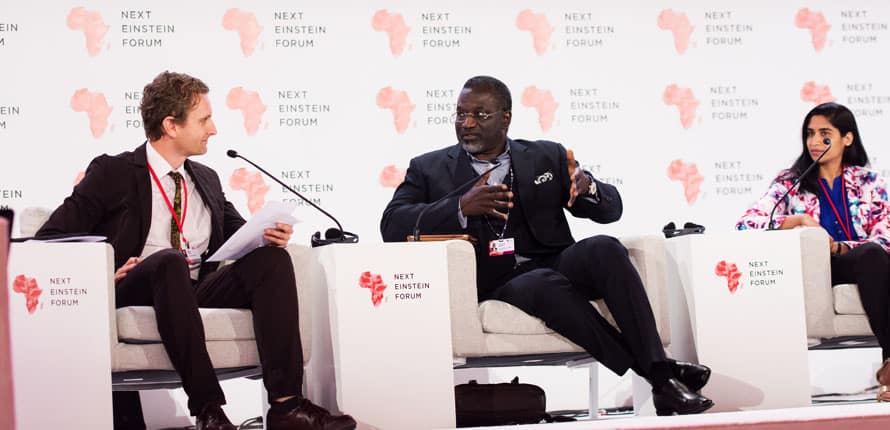The Plenary session on Feeding the world, preserving the world focused on various aspect and contributing factors of food security in Africa. The session was moderated by: Prof Adam Sneyd from the University of Guelph, who introduced the panelist to discussions around “Feeding the world, preserving the world” Dr Agnes Kalibata the president for a green revolution in Africa, Dr Ousmane Baliane the director for international food policy research institute ,Dr Sanushka Naidoo a NEF fellow and senior researcher at the department of genetics, University of Pretoria, and Chef Pierre Thiam Celebrated chef restaurateur cookbook author, who opened the talk with a presentation on a Special Ancient grain called Fonio which grows in Sahel region.
This specific grain has been around for more than 5000 years in countries such as Benin and Burkina Faso. The grain is known to be healthy, has a high protein value especially methionine and cysteine and is nutritious. Hence, could be introduce to the world market and in countries such as the USA. This will consequently aid in improving the economic situation in some of the countries were Fonio is grown, by involving the small holder farmers which in turn will be beneficial to them and the their families. Initiatives such as this may prompt small holder farmers to also adapt climate smart agricultural practices and protocols which has been slow to adapt and implement to in Africa.
This particular grain is just an example of how many of agricultural products from Africa can be in cooperated into the global market, through talks around new innovative approaches involving continental teamwork, partnerships amongst Government, farmers, market level dealers, venture capitalist, research scientist , and private investment to improve the economy of Africa through Agriculture. Some important questions which arose from this discussions includes ; What are the potential adaptation of consuming climate smart food? What drives climate smart diets, and what interdisciplinary ideas could be address? How can we feed Africa in a sustainable way while using less resources? Africa’s Agricultural sector is the potential niche to economic development of the continent. The panelist raised concerns around pest infestation in agriculture, the challenge of drastic climate change that has been observed in Africa and across the globe, alongside lack of critical mass, less resources, infrastructure , lack of trained skilled force, misallocation of government resources and wrong agricultural investments, lastly the lack of relevant Agricultural data also hinder progress in the implementation of some of this smart technologies, which may further contribute the impact this has on the food security, and lost on cost which in term has an effect on the economy. Hence, it’s important to understand the underlying factors contributing to poverty in Africa and ways to innovate sustainable solutions in Agriculture to address this.
The role of the Government should also be well defined alongside Academia and industry. Through building networks to share ideas, resources, new technologies across Africa to address issues such pest resistance, Drought tolerance in crops e.g. Maize cultivars. While adapting new technologies and practices blended with local content into various frame work to support the economic growth, and market viability in Africa and in so doing improve the livelihood of its people.
The World Bank in addressing the food security issue in Africa, with one of its focus of climate change rolled out various programs focused on Climate Smart innovation dealing with change in production volatility, and considerations of biodiversity,
As Africans and through governance and the leadership we need to enhance local and national level capacity, knowledge and interest in agriculture, to improve the living standards of people by take up the role of funding, and the sensitizing of new biotechnological process within the agricultural sector to address the issue of food security in Africa.
Feeding the world, preserving the world
April 16, 2018
